
Damian Magee
Damian Magee is a West Australian writer and reviewer and a member of the Sherlock Holmes Society. He’s a life long fan of crime, sci-fi, anime, literature, history, biography, TV & films who has been writing reviews, non-fiction, & presenting seminars on these genres for the past 30 years.
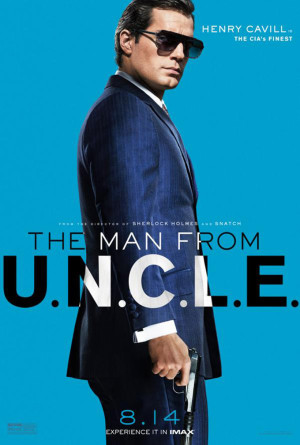 The Man from U.N.C.L.E. is another movie adaptation of a famous television series from the Sixties. I’m old enough to remember watching this series when it was first screened in Australia (1966-1969) on our black & white Pye TV set in the lounge room. I was a huge fan of the series and collected all the TV Annuals, comics, books and toys. I have the “UNCLE” model car in my collection now.
The Man from U.N.C.L.E. is another movie adaptation of a famous television series from the Sixties. I’m old enough to remember watching this series when it was first screened in Australia (1966-1969) on our black & white Pye TV set in the lounge room. I was a huge fan of the series and collected all the TV Annuals, comics, books and toys. I have the “UNCLE” model car in my collection now.
Like many fans I was worried when Hollywood announced a big screen version of “UNCLE”. Will the writers capture the tone? Will the casting work? Will the production accurately reflect the show and the settings? Modern remakes such as “Maverick “, “Get Smart” and “Starsky & Hutch” were spot on, but others, such as “Wild Wild West” and “The Avengers” (John Steed & Mrs Emma Peel), were just awful.
The U.N.C.L.E. movie has had a few stops and starts. I first heard about a production in 1998 that was stopped by the copyright holder when he discovered the director was only using the name, and writing something completely different. Since then, several directors have been attached to the project, such as Steven Soderbergh, and actors like George Clooney, Tom Cruise, and others. Warner Bros finally engaged Guy Ritchie who reinvented Sherlock Holmes with Robert Downey Jr. and Jude Law to huge acclaim.
So has Guy Ritchie made a successful adaptation on U.N.C.L.E.? The answer is definitively, yes! The movie has the heart and soul of the TV series. It is set in the right time period (early 1960s), the music is wonderful, the sets and cars are correct to the period, and the clothes are just gorgeous. Apparently a lot of authentic vintage clothing was used.
The movie has Napoleon Solo, (Henry Cavill), and Illya Kuryakin, (Armie Hammer), meeting for the first time. Napoleon is with the CIA and Illya the KGB, but both agencies “co-operate” to find a missing German Atomic scientist, and the bomb he is arming, by using his daughter, Gaby Teller, (Alicia Vikander) to help them.
Napoleon & illya start on opposite sides and only grudgingly work together while continuing to try and outdo each other. The action starts in East Germany, moves to West Germany and on to Italy. A mysterious organization is threatening the world. The only clues are in Italy with a shipping company run by Alexander Vincinguerra, (Luca Calvani), and his wife Victoria, (Elizabeth Debicki). Solo is undercover as an antiquities dealer, Kuryakin as a Russian architect with Teller as his fiancée. They try to get close to her uncle who works for Vincinguerra. Both Solo and Kuryakin encounter Alexander Waverly (Hugh Grant) of MI6 who reveals more of the assignment.
Cavill and Hammer work really well as a team; the chemistry in their journey from enemies to grudging allies and possible friends crackles off the screen. Cavill oozes charm as Solo, just as Robert Vaughn did. His character has a different history to the TV show, but it works very well for the plot of the movie. Hammer’s Kuryakin is just a cool as David McCallum, but ‘larger than life’ and with childhood memories from Soviet Russia that can trigger violent episodes.
Alicia Vikander is convincing and dynamic as Gaby (and gets to showcase some of the best clothes in the movie). We first meet her in East Berlin where she works as a mechanic. She then drives the car that she and Solo use to escape from East Berlin. The driving in the movie matches the brilliance of the original “Italian Job”. Elizabeth Debicki’s sinister Victoria Vincinguerra is as charming as a deadly Redback Spider as she monitors movements of the agents and leads them into a trap (Elizabeth is an Aussie actor).
With the opening scene set in East Berlin, I felt I was watching a film based on the early works of John Le Carre: the dark and sinister spy world. CIA versus KGB with MI6 somewhere in the background, and everyone playing for keeps. The composer Daniel Pemberto does an excellent job on the original score, using lots of brass and flutes to sound authentically sixties. Songs and music from the 1960s were also used for excellent effect, from the brilliant Nina Simone’s version of “Taking Care of Business”, Roberta Flack’s “Compared to What”, “Bunter Drachen” by Suzanne Doucet, “Il Mio Regno” by Luigi Tenco and themes from two Spaghetti Westerns: “Few Dollars More” and “A Man, a Horse, and a Gun.”
“The Man from U.N.C.L.E.” is an action packed fun film: a film that takes you back to the glamour and style of the 1960s, the Cold War, the Jet Set, fashion centred Europe & the grim spectre of the Atom bomb, through the music, clothes, and production style. I, for one, will be adding the music soundtrack and the blu-ray to my collection. (Additional note: the soundtrack has not been released in Australia according to JB HiFi, so will have to source that overseas).



















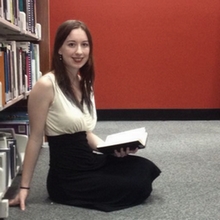
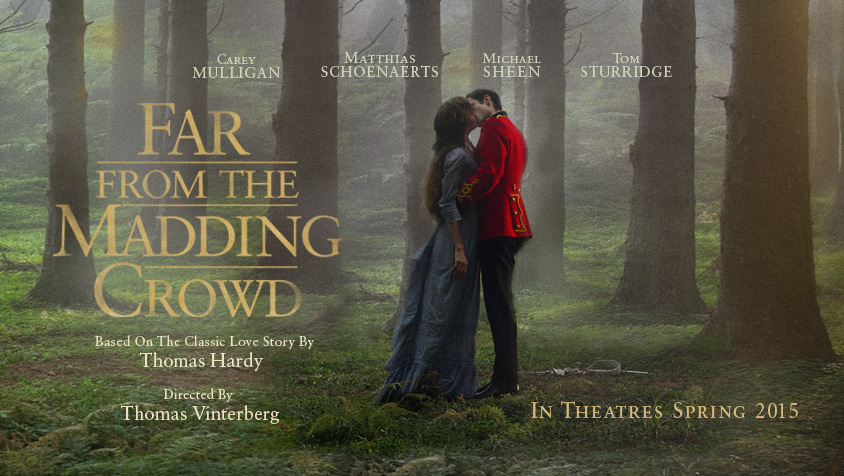
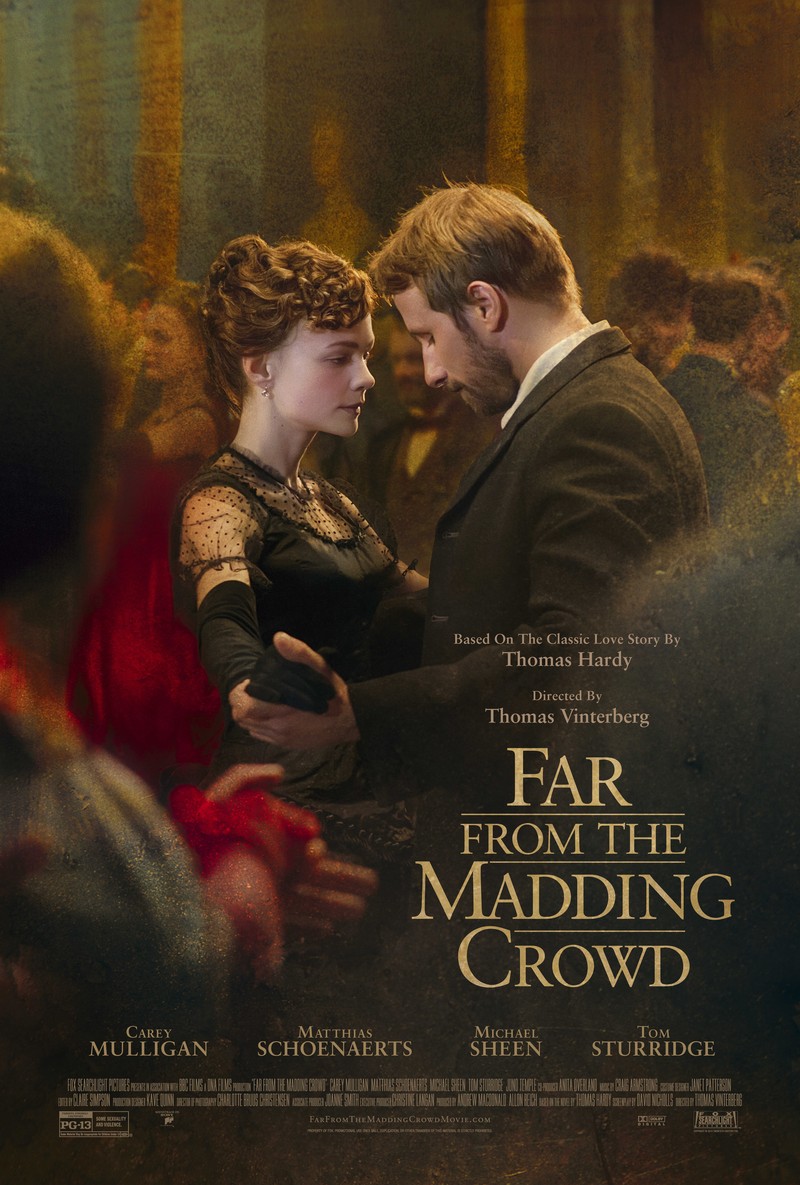
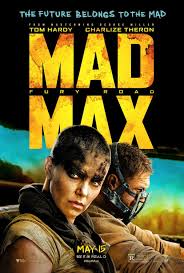 It’s hard to believe a movie that is essentially a two hour car chase could be so complex, but Mad Max: Fury Road is riddled with interesting storytelling choices that will change the way I view action movies from this point onwards.
It’s hard to believe a movie that is essentially a two hour car chase could be so complex, but Mad Max: Fury Road is riddled with interesting storytelling choices that will change the way I view action movies from this point onwards.














